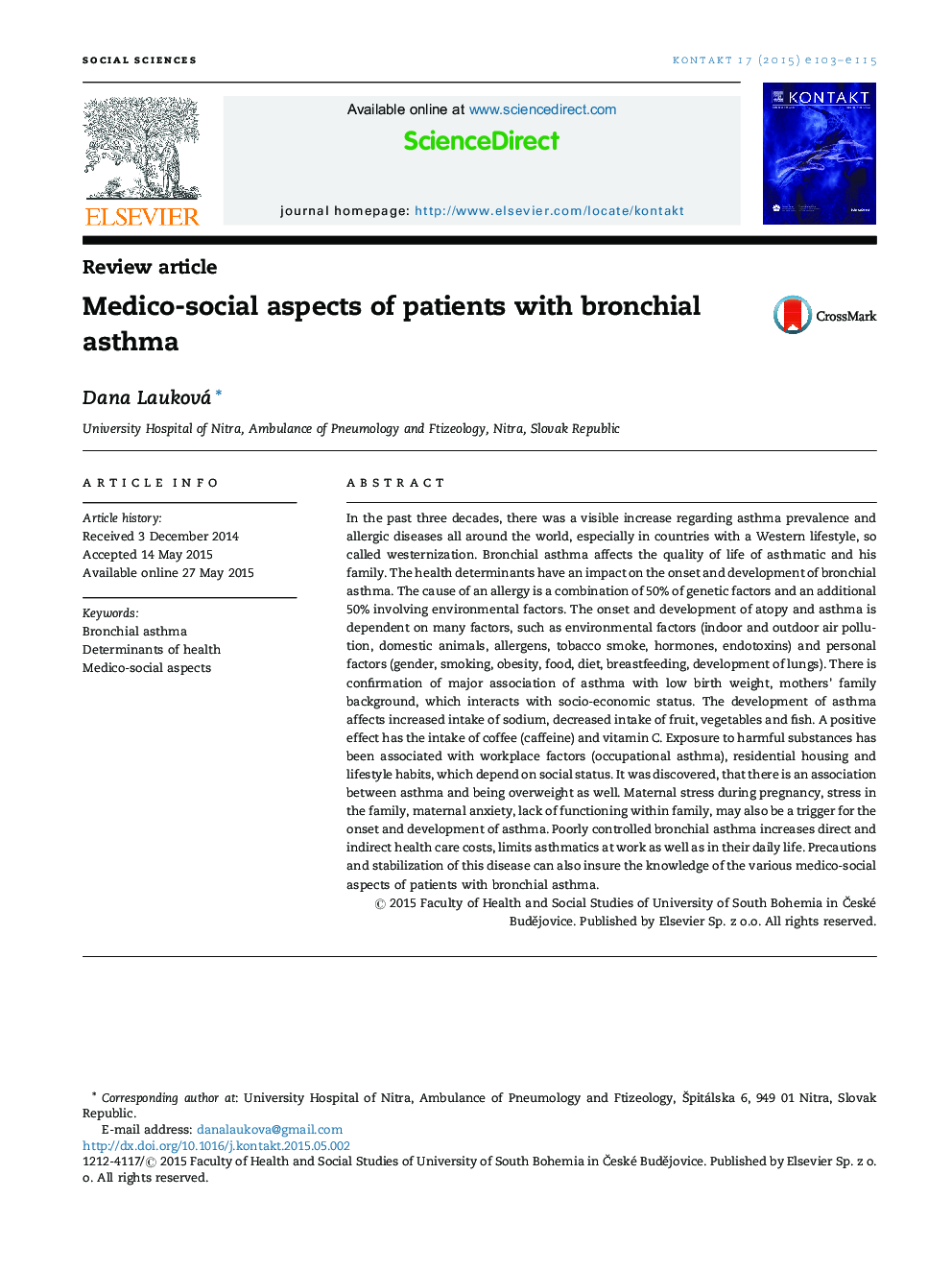| Article ID | Journal | Published Year | Pages | File Type |
|---|---|---|---|---|
| 1084439 | Kontakt | 2015 | 13 Pages |
In the past three decades, there was a visible increase regarding asthma prevalence and allergic diseases all around the world, especially in countries with a Western lifestyle, so called westernization. Bronchial asthma affects the quality of life of asthmatic and his family. The health determinants have an impact on the onset and development of bronchial asthma. The cause of an allergy is a combination of 50% of genetic factors and an additional 50% involving environmental factors. The onset and development of atopy and asthma is dependent on many factors, such as environmental factors (indoor and outdoor air pollution, domestic animals, allergens, tobacco smoke, hormones, endotoxins) and personal factors (gender, smoking, obesity, food, diet, breastfeeding, development of lungs). There is confirmation of major association of asthma with low birth weight, mothers’ family background, which interacts with socio-economic status. The development of asthma affects increased intake of sodium, decreased intake of fruit, vegetables and fish. A positive effect has the intake of coffee (caffeine) and vitamin C. Exposure to harmful substances has been associated with workplace factors (occupational asthma), residential housing and lifestyle habits, which depend on social status. It was discovered, that there is an association between asthma and being overweight as well. Maternal stress during pregnancy, stress in the family, maternal anxiety, lack of functioning within family, may also be a trigger for the onset and development of asthma. Poorly controlled bronchial asthma increases direct and indirect health care costs, limits asthmatics at work as well as in their daily life. Precautions and stabilization of this disease can also insure the knowledge of the various medico-social aspects of patients with bronchial asthma.
